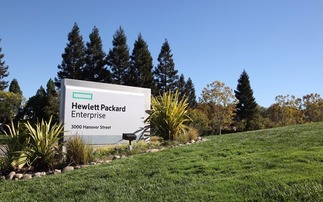But the firm's Russian subsidiary is hit with a $58.77m fine for bribing the Russian government
After a brief spell away from its acquisition trail, HP is seemingly back to buying companies after it announced it would purchase cloud computing start-up Eucalyptus. Financial terms were not d...
To continue reading this article...
Join Computing
- Unlimited access to real-time news, analysis and opinion from the technology industry
- Receive important and breaking news in our daily newsletter
- Be the first to hear about our events and awards programmes
- Join live member only interviews with IT leaders at the ‘IT Lounge’; your chance to ask your burning tech questions and have them answered
- Access to the Computing Delta hub providing market intelligence and research
- Receive our members-only newsletter with exclusive opinion pieces from senior IT Leaders




















